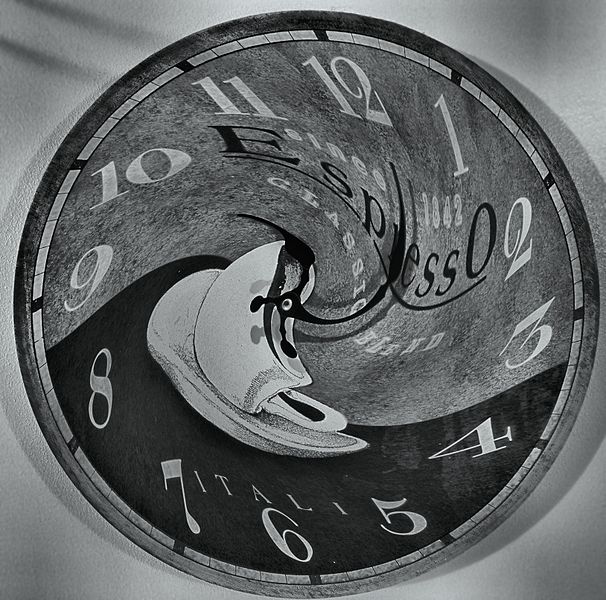Written by Danielle Natelson, director of engagement at Hillel at UCLA.
This Taste of Torah goes out to all my friends in the Jewish Bruin class of 2015, so if it’s coming across your news feed I suggest you keep reading.
You’d think this week’s parsha was all about the great life of Sarah, and perhaps Abraham as well, with the title, Chayei Sarah. But in fact they both die! And that’s not even the bulk of the plot! So why? Why choose a title so misleading? Why bother to highlight the endpoint of two great ancestors rather than the courtship of Rebecca — the beginning of the continuation of the Jewish people through her and Isaac? For sure, in the realm of our modern society this blatant marketing faux pax would not fly. But in the Torah, it’s instances like this, red flags, that beg us to pay attention, to look closer, to ask the question about the pink elephant in the room, that keep us coming back year after year to find one new grain not yet turned over in our attempt to better understand it. And more importantly, for it to help us understand ourselves.
The parsha opens with the repetition of a phrase, which should always make us wonder why, for no words are wasted in Torah — or in any form of literature for that matter. “Vayeheyu chayei sarah me’ah shana v’esreem shana v’sheva shanim shnei chayei sarah.” “And it was the life of Sarah a hundred years and twenty years and seven years [that makes 127!] the years of the life of Sarah.” Did you catch that? The life of Sarah was 127 years…was the life of Sarah. No knowledgeable editor would let that slip up go untouched. You’ve told me how old she was, or rather how long she lived, isn’t that enough? Clearly it’s not.
Moving right along, we get a glimpse of Abraham’s end drawing near as well. The Torah tells us: “V’ avraham zaken, ba bayamim, v’HaShem barech et avraham bakol.” “And Abraham was now old, advanced in his days, and the Lord had blessed Abraham in all things.” Ok, slightly more grace this time, but still essentially a repetition of what’s being said. Abraham is old, getting up there in age. Doesn’t that mean the same thing?
And last but certainly not least, Abraham’s life comes to an end “V’eleh yemey sheney chayey avraham asher chai me’at shana v’shivim shana v’chamesh shanim.” “And these were the days of the years of the life of Abraham that he lived one hundred years and seventy years and five years [a grand total of 175 years!]” If you look closely, there are actually two elements of repetition in this final quote. The obvious one, the life that Abraham lived, and the more conspicuous one…the days of the years of Abraham’s life. Of course we know that years are made up of days, and that the term “days” can be used to refer to one’s life. But why use both days and years?
Great. So now that I’ve laid this all out there and built enough suspense here comes the lightbulb moment. Judaism is all about life. Specifically this life, the one you’re living here and now. And not just as an overall concept but as every day, hour, minute, and second, that makes it up. It’s about sanctifying the gift of life by marking time in an intentional and holy way and consistently appreciating its value. The parsha’s opening emphasis on Sarah’s life at the time of her death is a beautiful example of the value Judaism places on celebration of life as an integral component of mourning. It’s a reminder that our life has the power to leave behind a lasting legacy. The double mentioning of Abraham’s old age and the blessing that comes with it gives us an exemplary model for appreciation of the wisdom acquired through experience and maturity. And the significance of Abraham’s days, in addition to his years, are a reminder to make the most of each 24-hour, neatly wrapped gift that is the present (see what I did there?).
This appreciation of time and life is a skill that I’m still struggling to develop, and one with which I hope to continue to engage. So for you seniors out there, when the time comes to leave this place, graduation won’t be about an end. It’ll be about the beautiful tapestry you’ve woven out of the threads of time you’ve spent here over the years. When you think about how old you are as seniors, see it as an achievement of wisdom and blessing that you have the opportunity to share with others. And for those of you who look at the seniors with relief that you aren’t there yet, that you’re only a freshmen, sophomore, or junior, it’s most important for you to think less of your years and more of your days, every one of them, and how you’re maximizing them as a Bruin.
Don’t believe me? Then believe Ryan Tedder and One Republic.
“Hope that you spend your days
But they all add up
I, I did it all
I owned every second
That this world could give
I saw so many places
The things that I did
I swear I lived”
___________________
This article is part of Ha’Am’s new Friday Taste of Torah column. Each week, a different UCLA community member will contribute some words of Jewish wisdom in preparation for Shabbat.

